CCO Withernsea
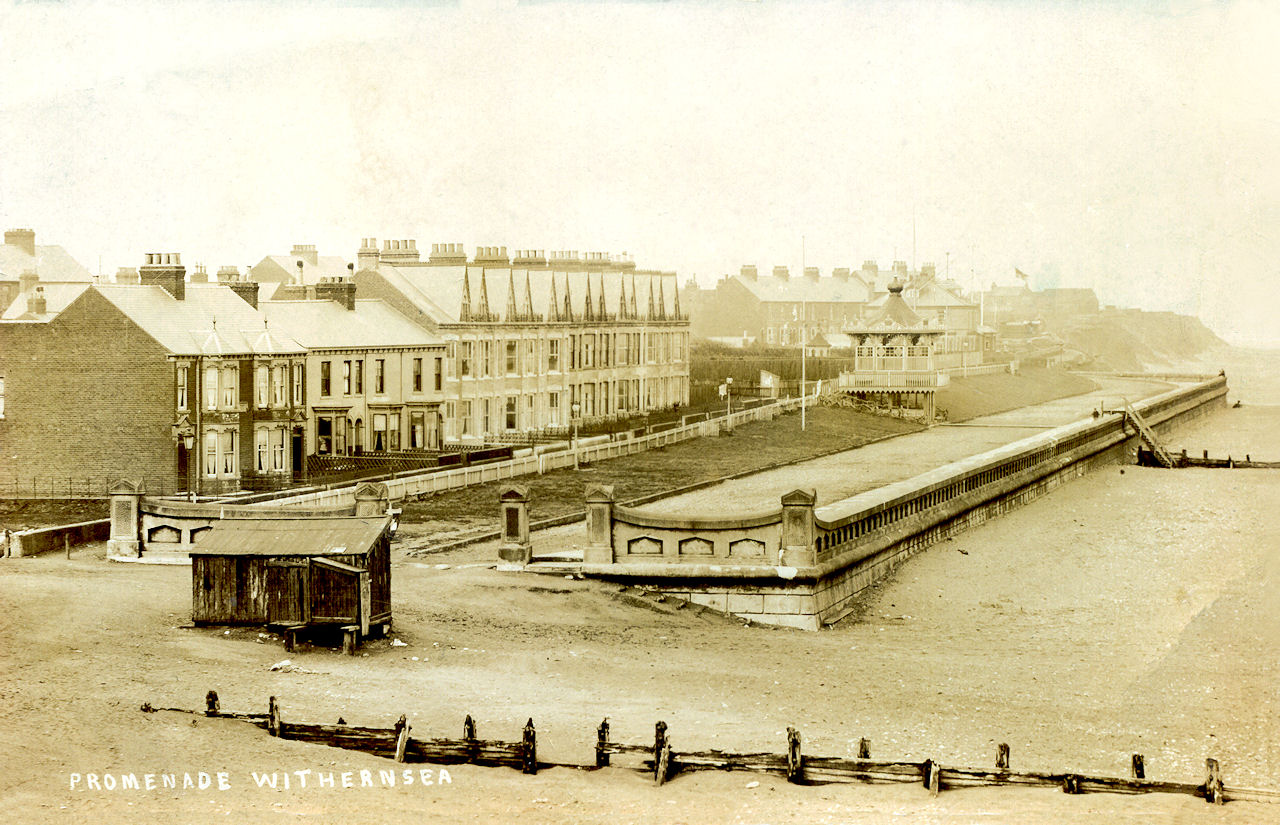
Back in the early 1800s Withernsea was undefended from the North Sea. The above picture from 1890 shows the full extent of the Withernsea Promenade. To the north and south of the promenade there was a gently sloping beach down to the water’s edge.
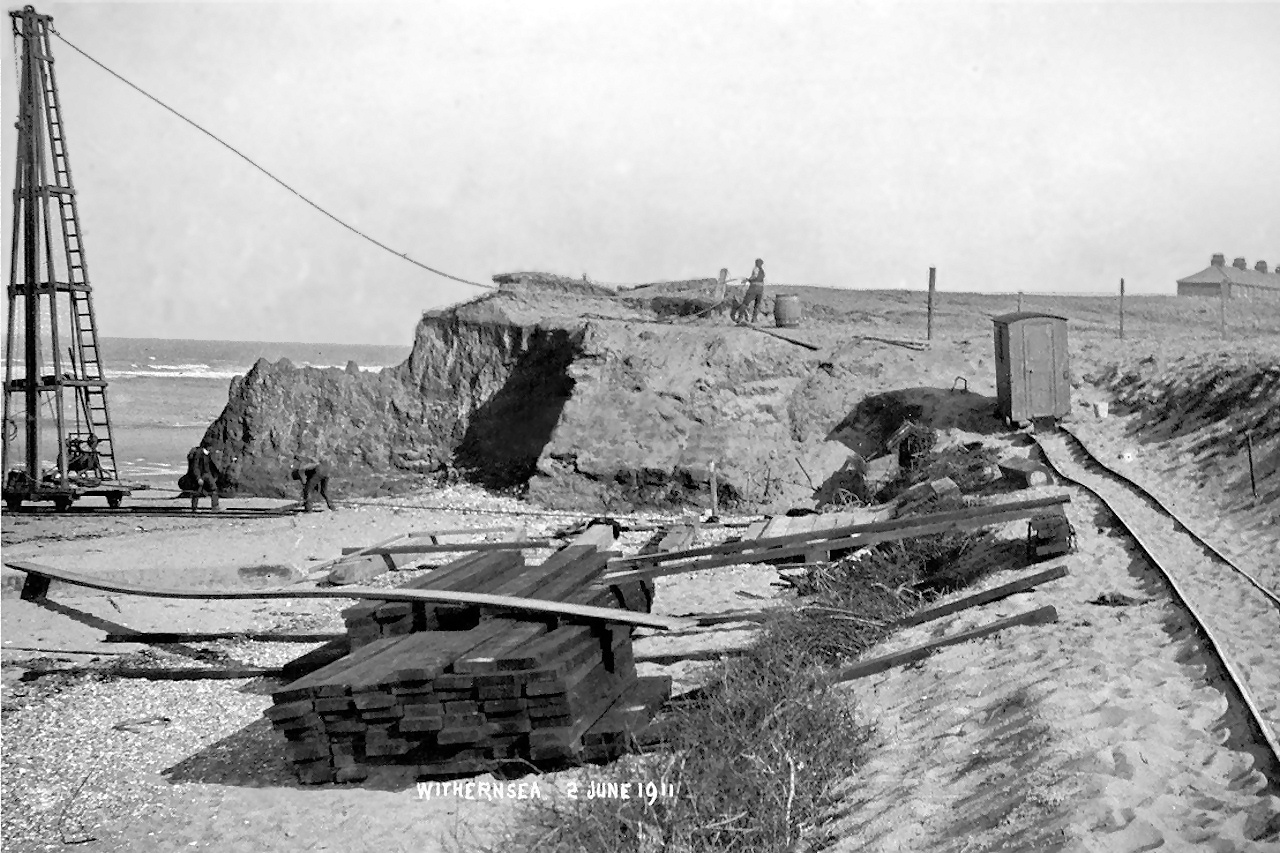
The wooden groynes were added to slow down the movement of the beach material. This picture shows the piling rig used just north of Withernsea in 1911.
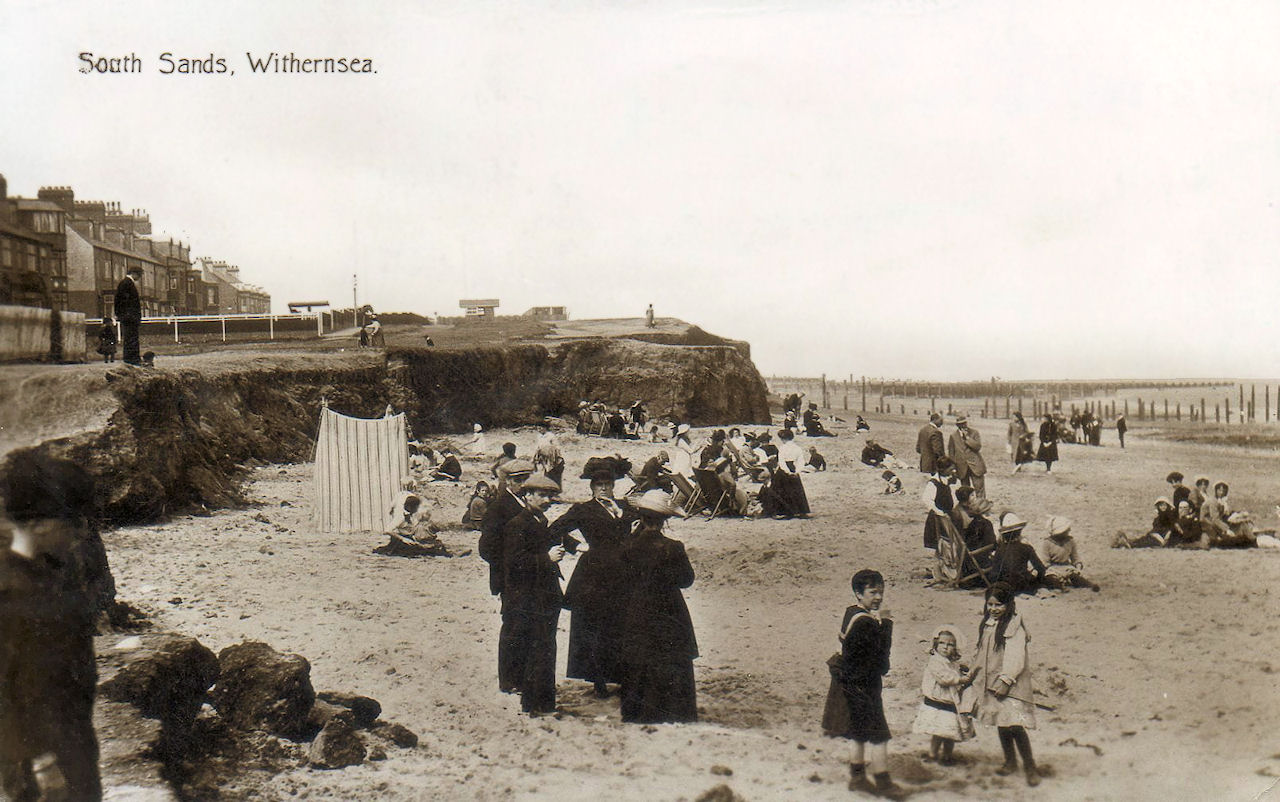
This picture from 1913 shows the complete lack of any sea defences to protect the south side of the town.
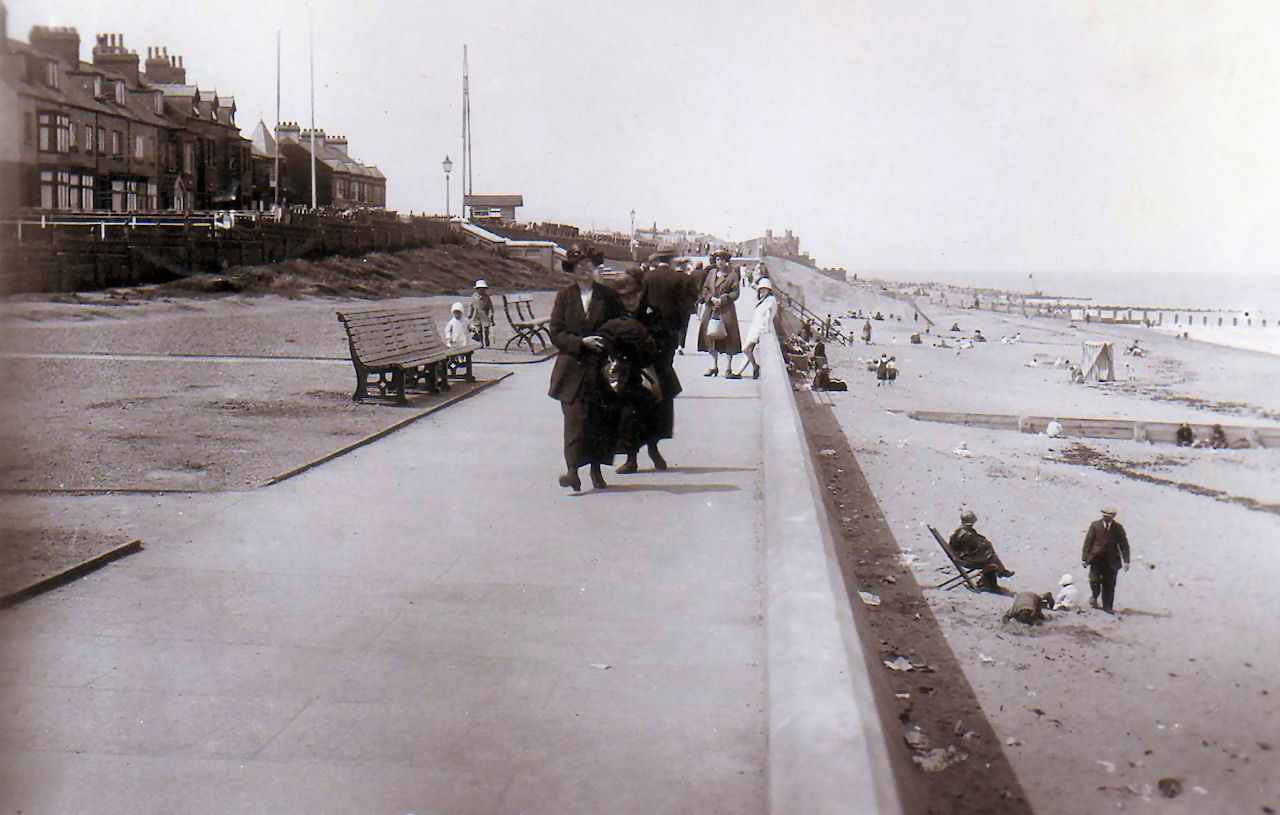
By 1926 the promenade had been extended considerably both to the north and south providing much needed protection for the town.
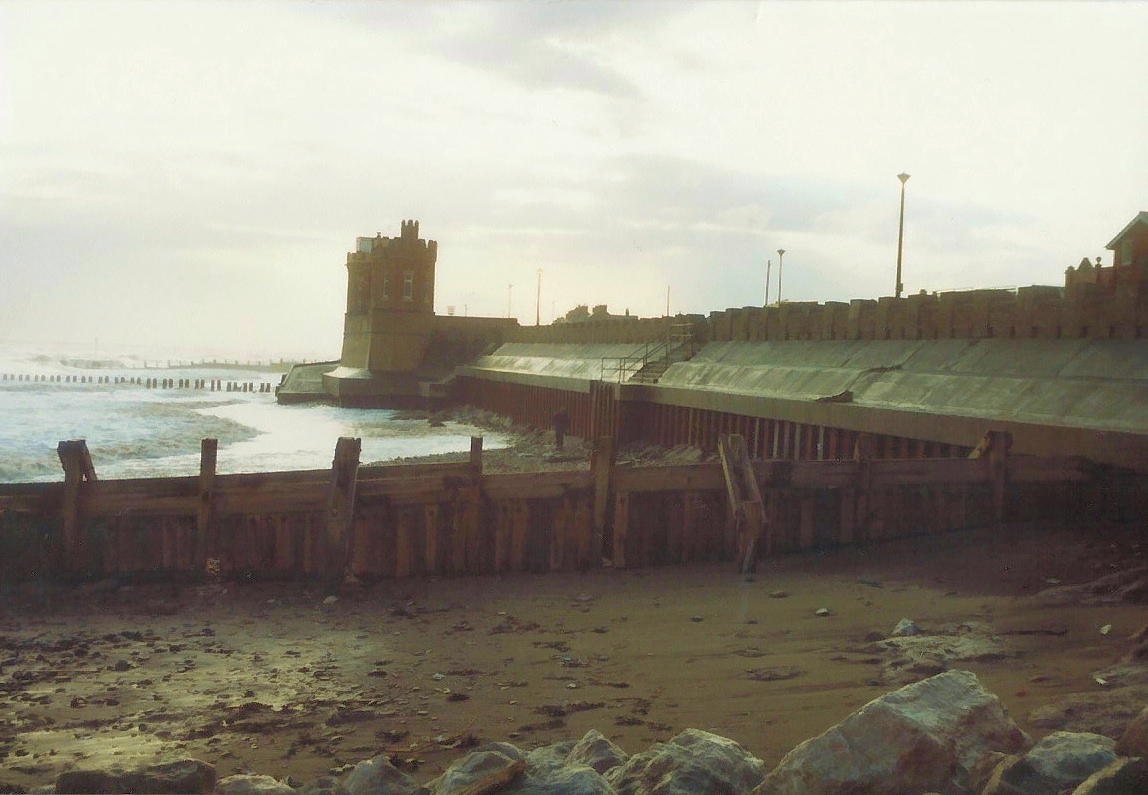
This picture from 1994 shows the seafront at Withernsea protected by hard engineering solutions, wooden groynes and concrete seawalls with steel sheet piling.
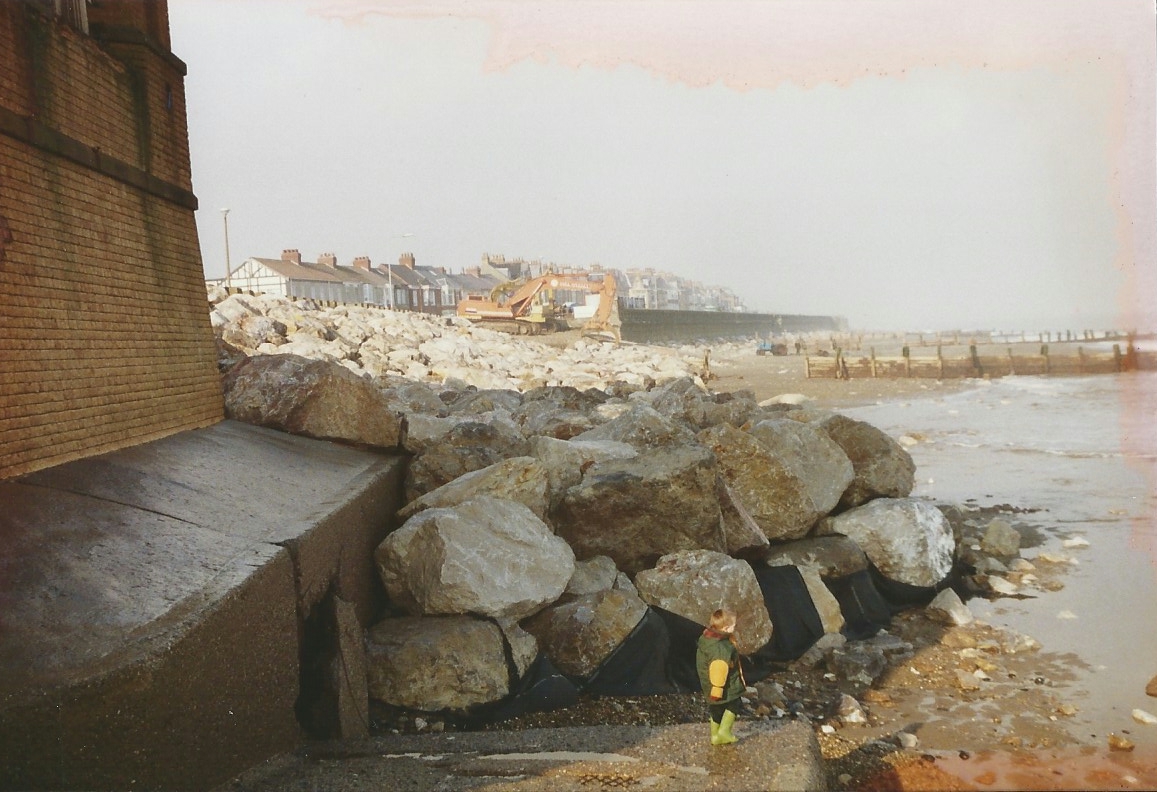
From 1994 to 1996 extensive rock armour was added to the full length of the promenade to further protect the promenade from the sea.
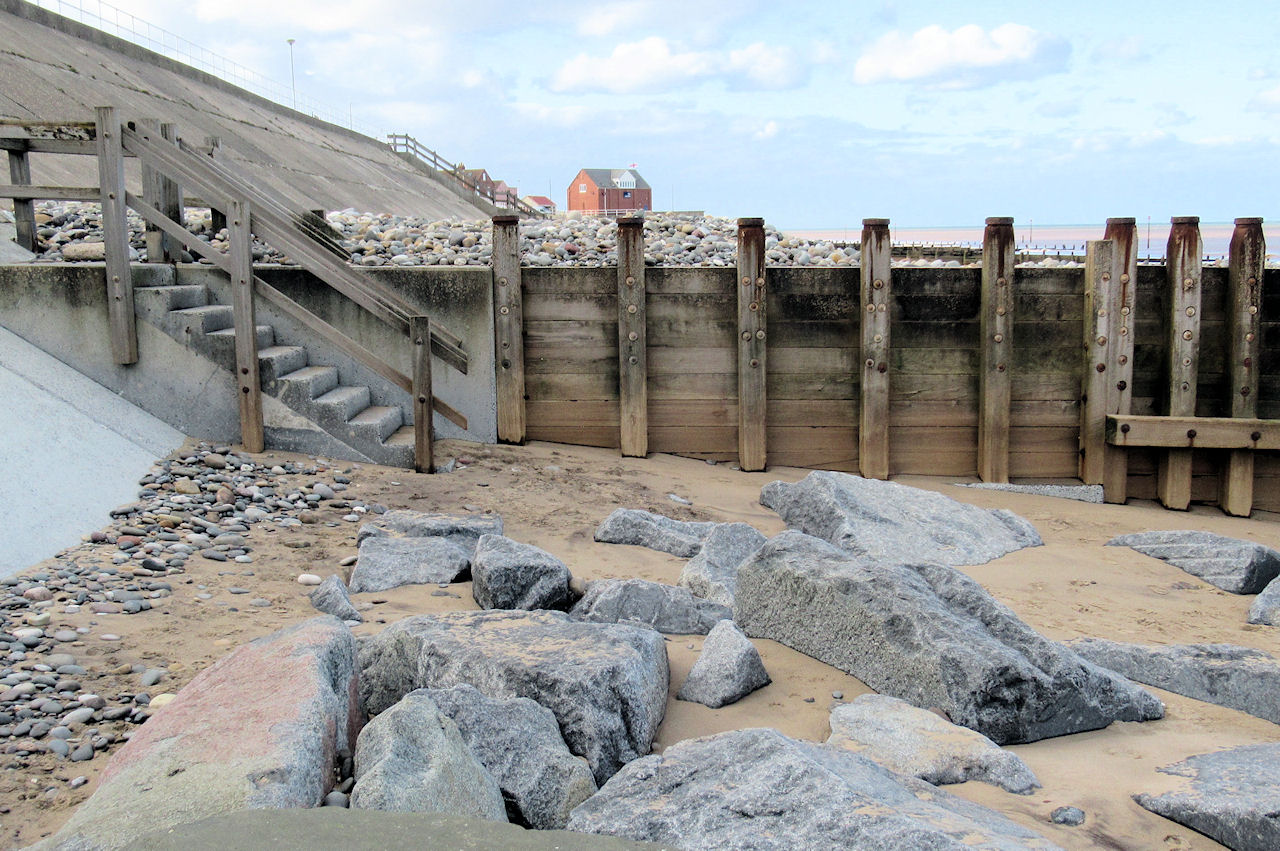
Notice the significant amount of beach material held back by the timber groyne in this picture.
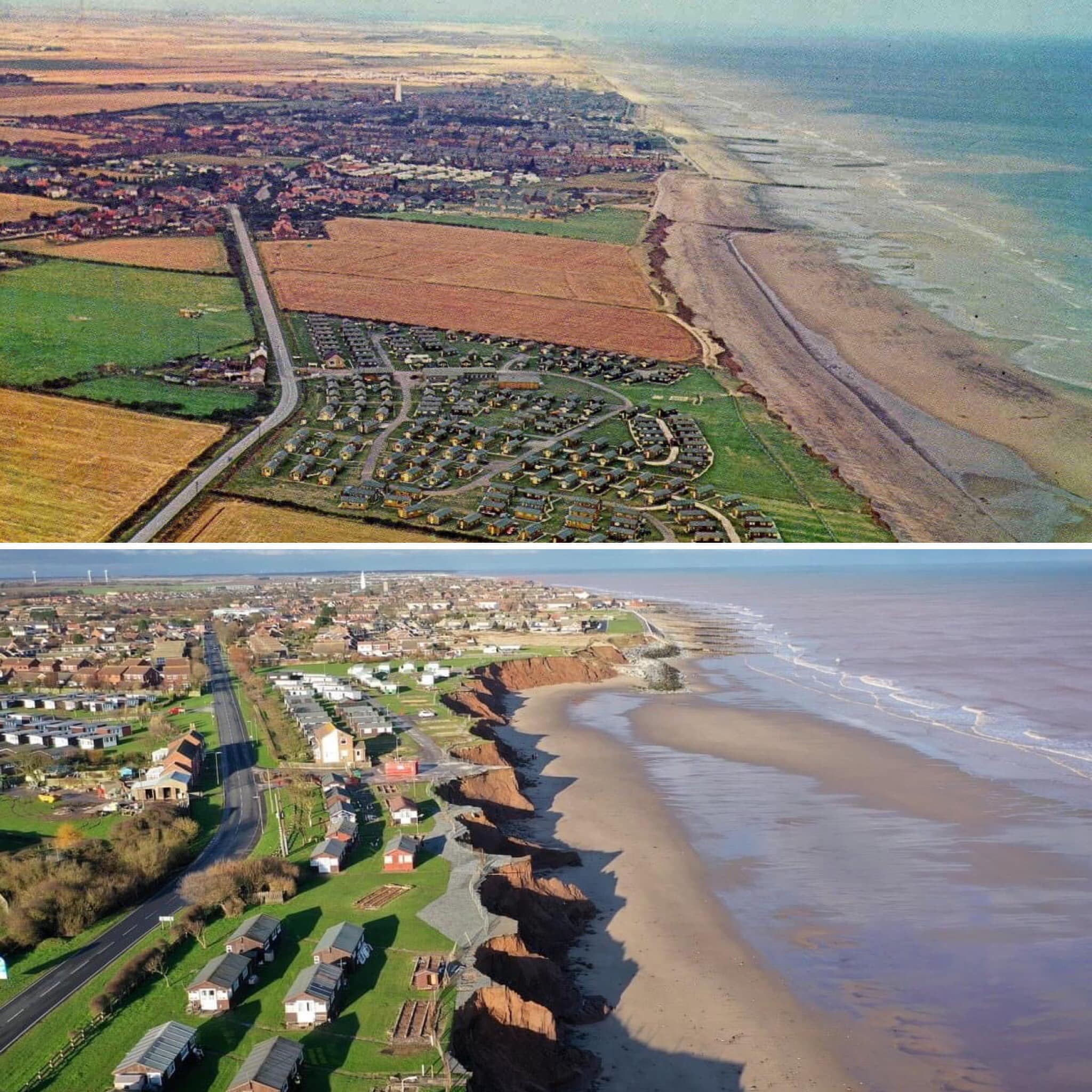
Above shows how coastal erosion has affected the Withernasea Sands caravan Park. The first picture was taken in the 1950's with the whole caravan park between the main road and the sea. The second picture was taken from a similar position in 2020 (picture from the Guardian Newspaper) only two rows of shalleys still remain.
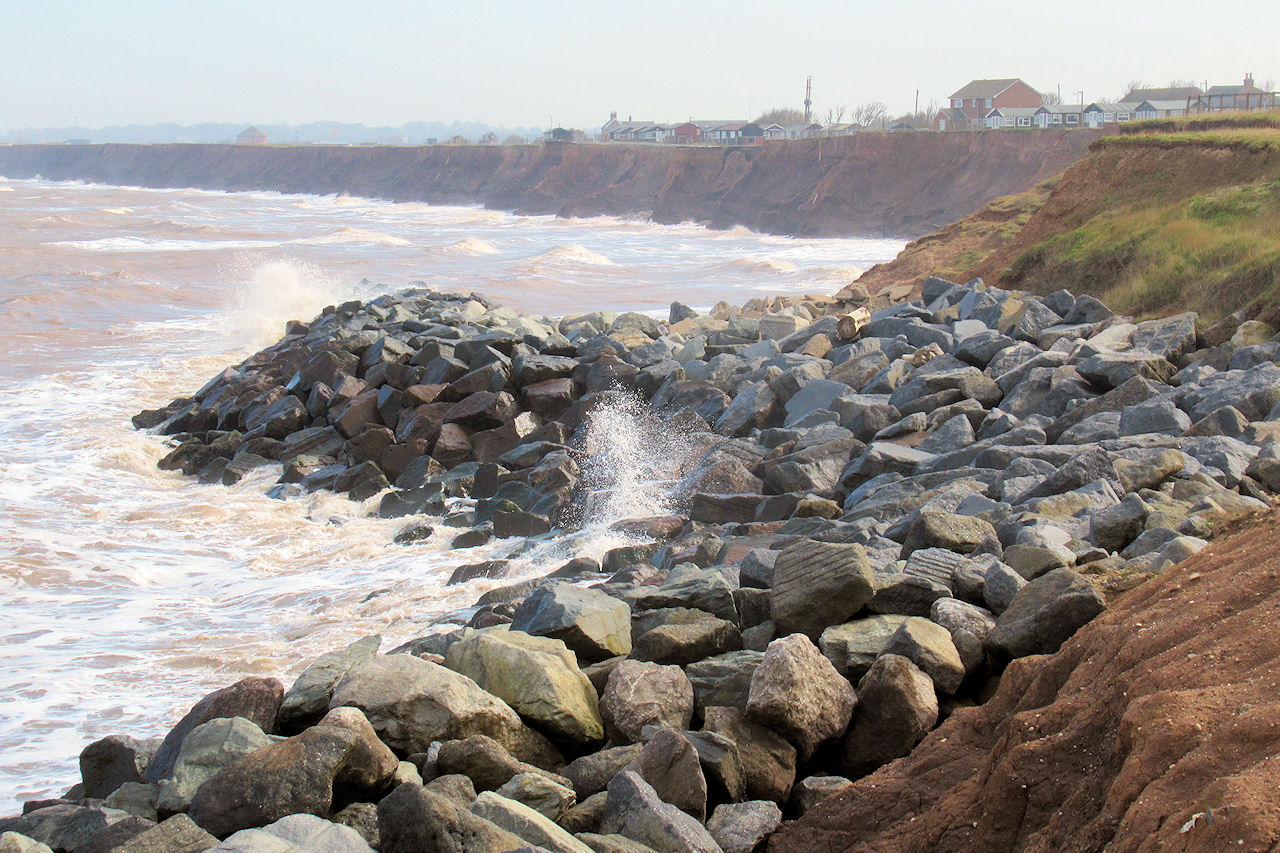
Rates of coastal erosion have increased to the south of the defences at Withernsea. This is because the material is trapped by the groynes further north, and beach material that is transported away by longshore drift is not replaced. Waves can then reach the base of the cliff at high tide causing erosion of the soft boulder clay.
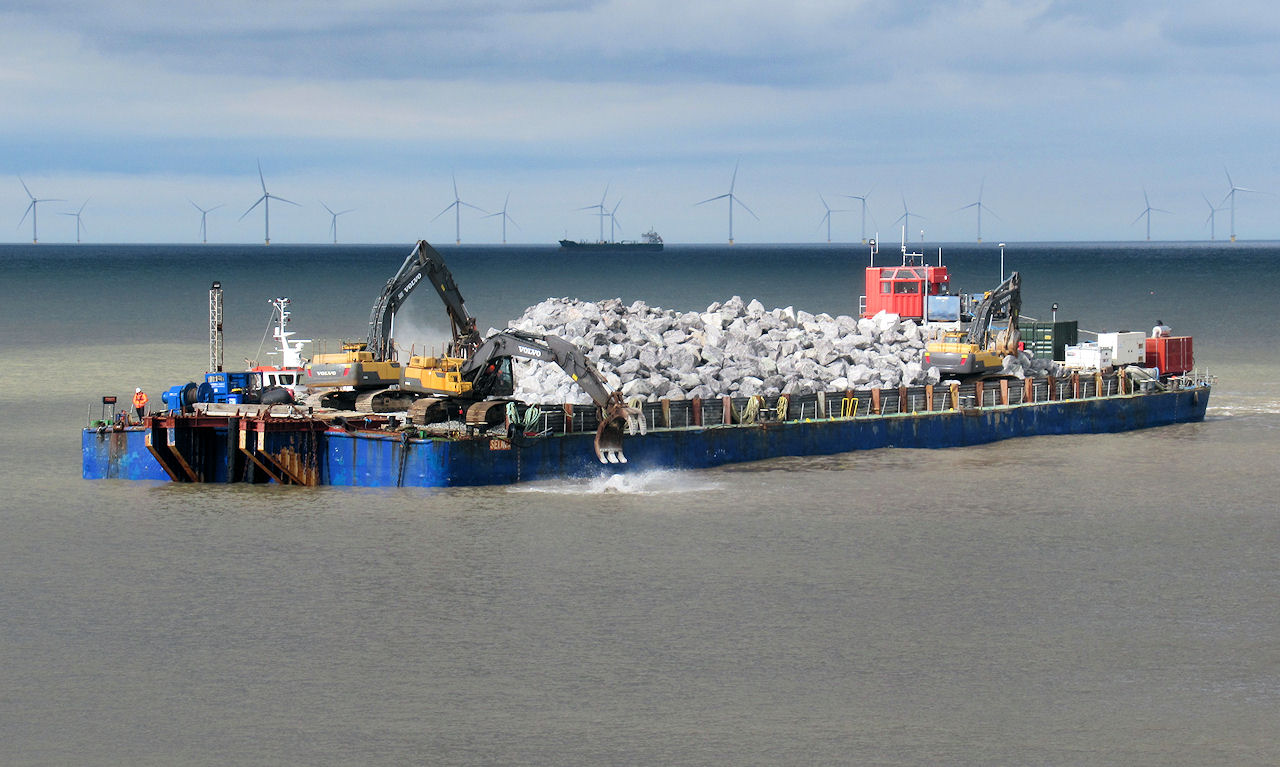
In 2020 barges with granite boulders brought in from Norway was used to extend the sea defences further south to protect the southern end of Withernsea and the main road to Holmpton and Easington.
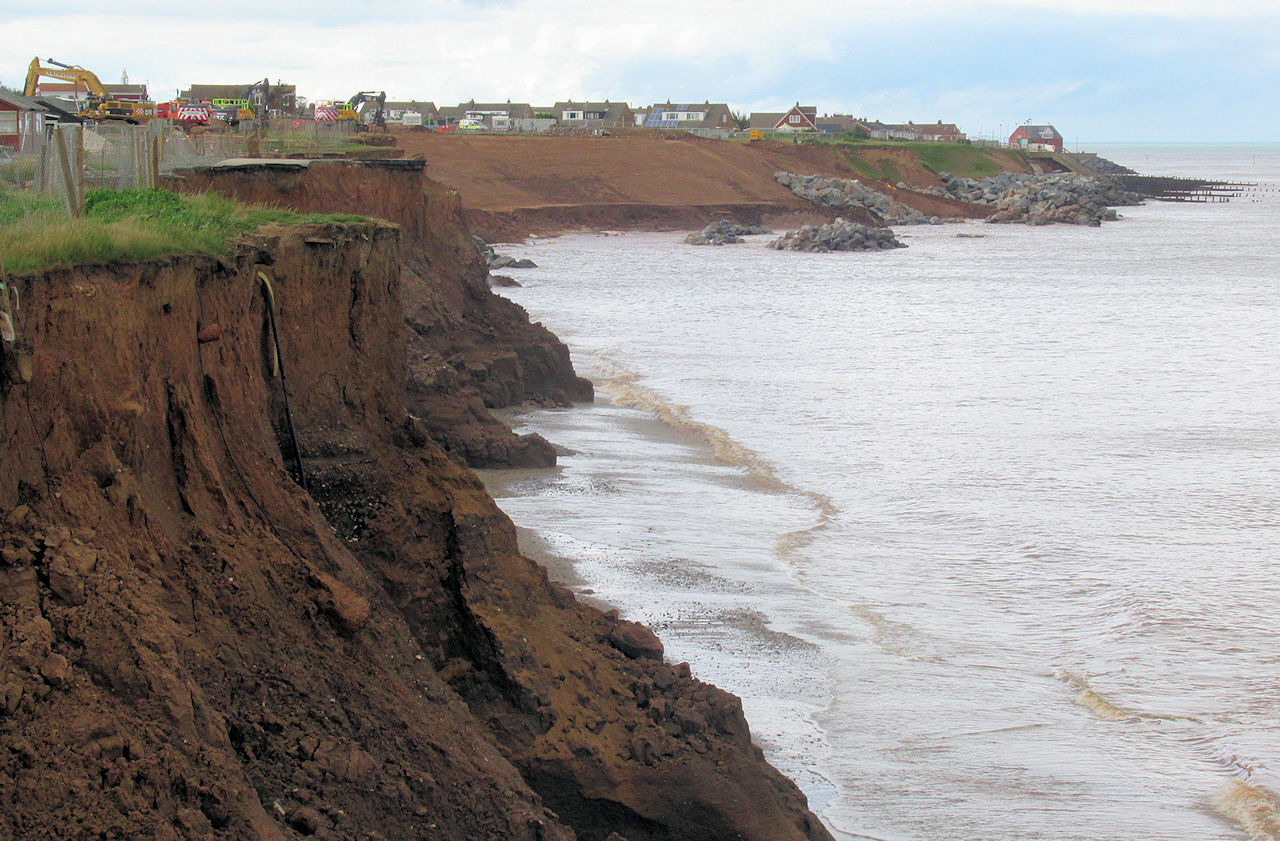
The eroding cliffs and bay created by coastal erosion to the south of Withernsea June 2020.
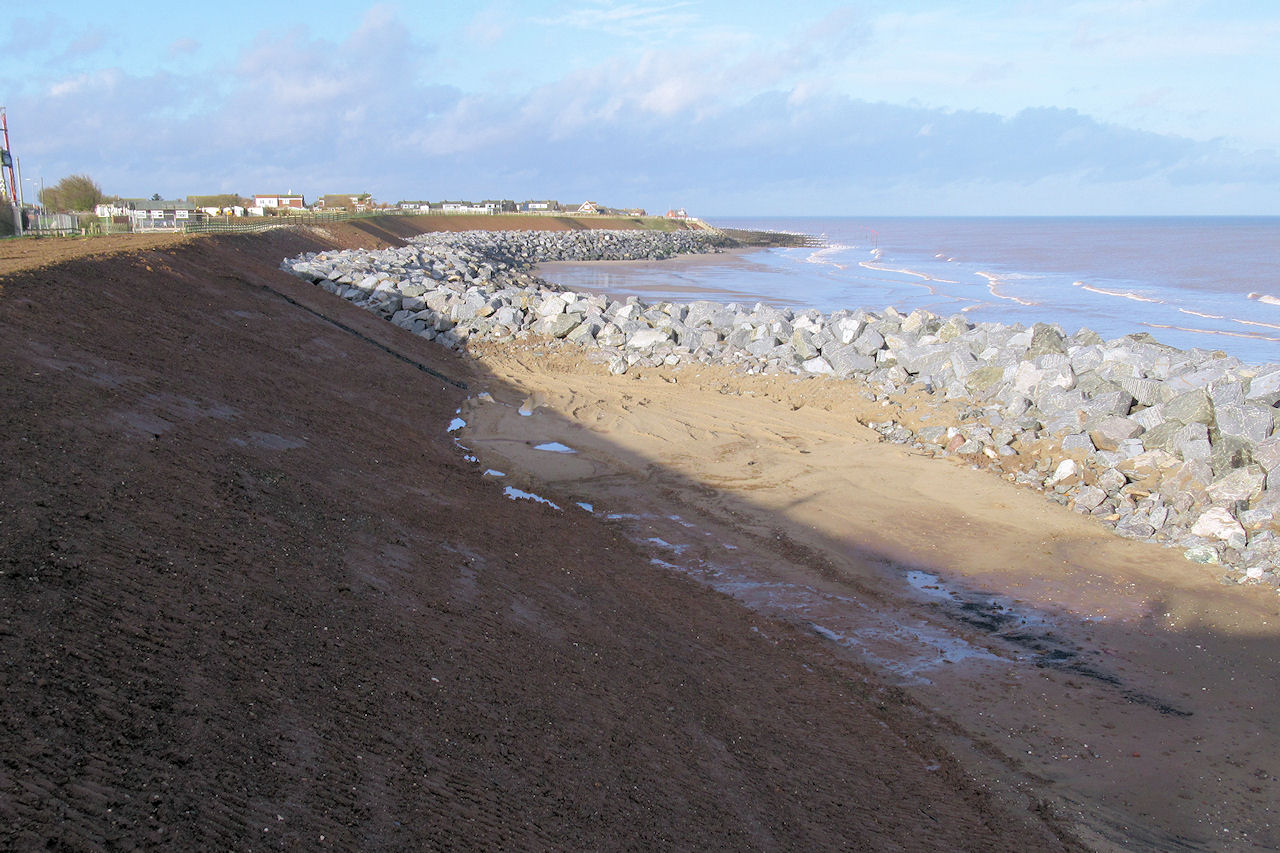
New sea defences completed in December 2020